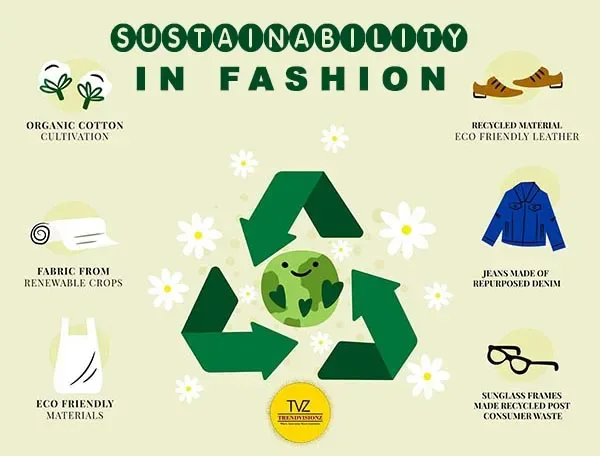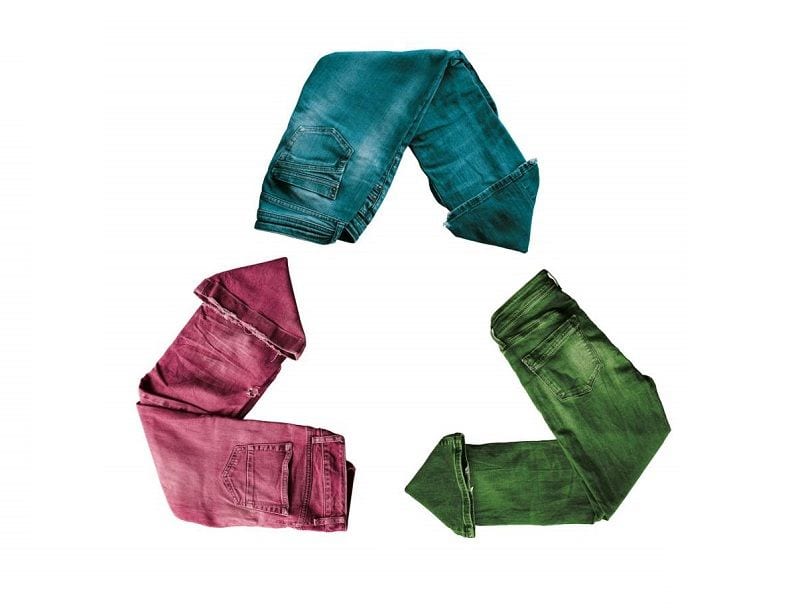Stay Ahead of the Curve by Checking Out Ingenious Fashion Trends
In a market as vibrant as style, remaining ahead includes greater than just complying with current trends-- it demands an expedition of innovation. Smart textiles, for circumstances, are transforming garments into practical work of arts, while 3D printing is revolutionizing design procedures with its adjustable, waste-reducing capacities. As sustainability comes to be a cornerstone, advancements like environment-friendly products and circular fashion techniques are reshaping ecological responsibility - Cape Town Sustainable Fashion. Moreover, the convergence of technology and style declares a brand-new age of consumer interaction. How, after that, can these arising trends redefine the future of style, and what effects do they hold for brands looking for to thrive in this advancing landscape?

Accepting Smart Textiles
In the last few years, the fashion business has actually observed a transformative shift with the combination of clever fabrics, a sophisticated development that mixes technology with material. This development stands for not only a blend of aesthetic appeals and performance however also a substantial leap towards sustainability and customization in vogue. Smart fabrics, also referred to as e-textiles, installed sophisticated electronic devices such as sensors and conductive strings within the fabric, allowing garments to communicate with the wearer or the atmosphere.
These textiles are designed to keep track of physiological specifications, such as heart rate or body temperature, providing real-time wellness analytics. Beyond health and wellness applications, wise fabrics are additionally being made use of for adaptive clothing, which can change shade or pattern in reaction to ecological stimulations, hence using a dynamic style experience.
Furthermore, the advancement of energy-harvesting textiles that create power from motion or sunlight is leading the way for self-dependent wearable innovation. This advancement is appealing to environmentally conscious consumers and developers aiming to minimize the ecological footprint of fashion. As r & d in this field advance, wise fabrics are anticipated to end up being increasingly widespread, improving the landscape of contemporary style with their multifunctional capabilities.
The Surge of 3D Printing
Revolutionizing the manufacturing landscape, 3D printing has actually become a game-changer in the fashion market. This cutting-edge modern technology has enabled designers to press the borders of creativity, producing complex and tailored garments that were formerly inconceivable. By leveraging electronic style and additive manufacturing, 3D printing promotes the development of complicated geometries and patterns, allowing designers to try out new appearances and structures.
A notable advantage of 3D printing in vogue is its capacity to produce on-demand, lessening waste and reducing stock needs. This performance not just enhances production procedures yet likewise permits for rapid prototyping, making it possible for designers to bring their visions to life in a much shorter timeframe. In addition, 3D printing supports personalization to a level unmatched by typical techniques, supplying distinct styles and tailored fits customized to private customer preferences.
The surge of 3D printing has also equalized fashion, making it accessible to arising developers who can now fabricate top quality items without considerable financial investment in standard manufacturing facilities. As innovation continues to development, the apparel industry is positioned to harness the full potential of 3D printing, discovering new products and methods that will undoubtedly redefine how fashion is conceived and produced.
Sustainable Fashion Technologies
As the apparel industry faces the pressing need for ecological obligation, lasting fashion innovations have emerged at the center of transformative modification. The growing awareness of environmental influence has actually fueled a shift in the direction of more eco-conscious practices and materials. Designers and brands are now prioritizing sustainability, incorporating approaches that decrease waste and minimize carbon impacts.
One substantial advancement is the surge of round style, which highlights recycling and upcycling to expand the lifecycle of garments. This strategy not only decreases waste yet also motivates customers to adopt a much more conscious strategy to apparel intake.
One more development hinges on the adoption of ingenious dyeing methods that make use of waterless procedures or all-natural dyes, therefore minimizing the large quantities of water and chemicals typically utilized in fabric dyeing. Furthermore, helpful resources improvements in biotechnology have actually resulted in the development of lab-grown leather and textiles, using ecologically friendly and cruelty-free alternatives to conventional products. Through these pioneering initiatives, the apparel industry is making significant strides towards a more sustainable future.

Tech-Integrated Garments
Tech-integrated garments stands for an innovative combination of style and innovation, reshaping exactly how individuals connect with their clothing. This cutting-edge domain name is marked by the incorporation of wise fabrics and ingrained digital elements, boosting both performance and aesthetic allure. From fitness trackers installed in sportswear to heated coats regulated by means of smartphone apps, tech-integrated apparel provides customers unprecedented ease and flexibility.
Pioneering brand names are driving this trend, concentrating on creating garments that react to environmental stimulations or individual commands. For example, some garments can transform shade or pattern in feedback to temperature changes, while others integrate biometric sensing units to keep track of health metrics like heart rate or anxiety levels. The seamless integration of modern technology into textiles also expands to ecological sustainability, with efforts to develop self-cleaning materials or garments that change to climate condition, therefore reducing the demand for several layers.
Furthermore, the advent of wearable modern technology is not simply restricted to garments however encompasses accessories like watches and glasses, additional widening the scope of tech-integrated fashion. As the industry proceeds to innovate, the possibility for personalization and customization in apparel expands, supplying consumers special, tech-enhanced style experiences that deal with their individual requirements and choices.
Future of Virtual Style
In recent years, the future of virtual fashion has arised as a transformative force within the market, leveraging advancements in electronic innovation to redefine exactly how fashion is produced, experienced, and consumed. By integrating augmented truth (AR), digital fact (VR), and 3D design devices, developers can currently craft immersive and interactive experiences that go beyond standard fashion borders. Digital style permits for the creation of garments that exist solely in click to read electronic atmospheres, offering limitless opportunities for innovation without the constraints of physical production.
This digital change not only provides chances for innovative expression but also addresses sustainability issues inherent in conventional fashion techniques. Cape Town Sustainable Fashion. By removing the requirement for physical resources, digital fashion decreases waste and decreases carbon footprints. Additionally, the rise of virtual fashion straightens with the boosting customer need for individualized and special experiences, as digital garments can be tailored and tailored to individual preferences with simplicity

Final Thought
The fashion business's future depend on the assimilation of innovative innovations and sustainable methods - Cape Town Sustainable Fashion. Smart fabrics and tech-integrated garments are enhancing functionality, while 3D printing supplies opportunities for personalization and waste reduction. Sustainable fashion, with circular strategies and environmentally friendly materials, shows a dedication to environmental stewardship. In addition, virtual style is positioned to redefine customer communications. Adjusting to these fads is crucial for home brands seeking to continue to be affordable and appropriate in this quickly evolving landscape.
In recent years, the fashion sector has seen a transformative shift with the integration of clever textiles, an innovative advancement that blends modern technology with material.As the style market grapples with the pushing need for environmental responsibility, lasting fashion technologies have actually arised at the leading edge of transformative adjustment.In recent years, the future of online style has actually emerged as a transformative pressure within the sector, leveraging developments in electronic technology to redefine exactly how fashion is produced, experienced, and eaten. The surge of online fashion aligns with the increasing customer need for personalized and one-of-a-kind experiences, as digital garments can be customized and customized to individual choices with ease.
The fashion market's future lies in the combination of ingenious technologies and sustainable techniques.